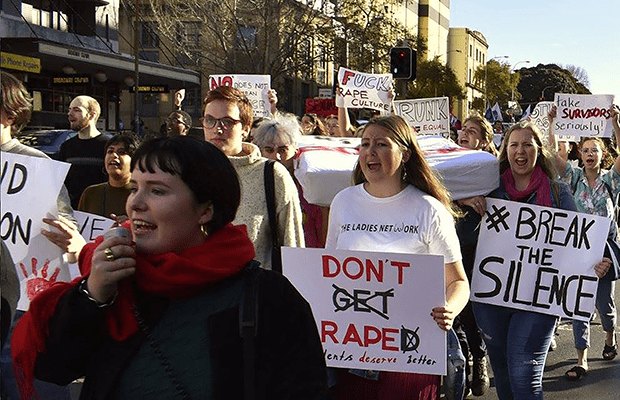End Rape on Campus Australia (EROC) released The Red Zone on Monday morning, a 200-page report detailing extensive accounts of sexual harassment, sexual assault, and “hazing” at residential colleges across Australia.
The document, which was prepared with no external funding by Walkley Award-winning journalist Nina Funnell and EROC ambassador Anna Hush, was partly designed to correct perceived issues with 2017’s Broderick review into USyd colleges. Among other flaws, critics contend that the Review overemphasised the institutional reputation of residential colleges while omitting former college survivors from case studies, outcomes that stem from the questionable methodological decision to rely on focus groups over one on one interviews.
“The [Broderick review] failed to analyse the history of cultural problems that have plagued the colleges for so many decades,” said EROC ambassador Anna Hush. “[The Red Zone] puts together a history of cultural colleges in a way we thought hadn’t been done before”.
Indeed, roughly a quarter of the The Red Zone is dedicated to backgrounding sexual misconduct in colleges: drawing information from the media, and survivor testimonies to create a timeline and explainer of sexual harassment and assault allegations and the institutional responses to these allegations from as early as the 1930s to as recent as August 2017.
Around thirty pages are also dedicated to a general discussion of college culture, which includes a discussion of the epidemic of misogyny and sexism among other less common points of analysis, such as problems of “homophobia”, “racism and colonialism” and even, “animal cruelty”.
“We wanted to take an intersectional approach at looking at college culture,” Hush explains. “The general privilege that college students and communities have plays out in so many different ways. The issue of wealth and power is something we definitely need to understand if we want to get a grasp on what’s happening in the colleges”.
Contrary to recommendations in the Broderick review, which largely focused on fixing problems internally, The Red Zone also implores institutions like universities and the State and Federal governments to pressure colleges to change their operation. More concretely, this looks like: a review of legislation governing colleges at a state level, the implementation of a federal task force into sexual assault and harassment in colleges, greater compliance with university procedures and policies, and the criminalisation of “hazing”. Whether or not these recommendations will be accepted by colleges is unclear, as historically these institutions have remained resistant to external pressure. Nonetheless, the report certain lends credence to Hush’s view “there needs to be a systematic transformation of the whole system of colleges.”
“Tinkering around the edges has gotten us nowhere in fixing the problem.
A full copy of the report is available at http://endrapeoncampus.org/





